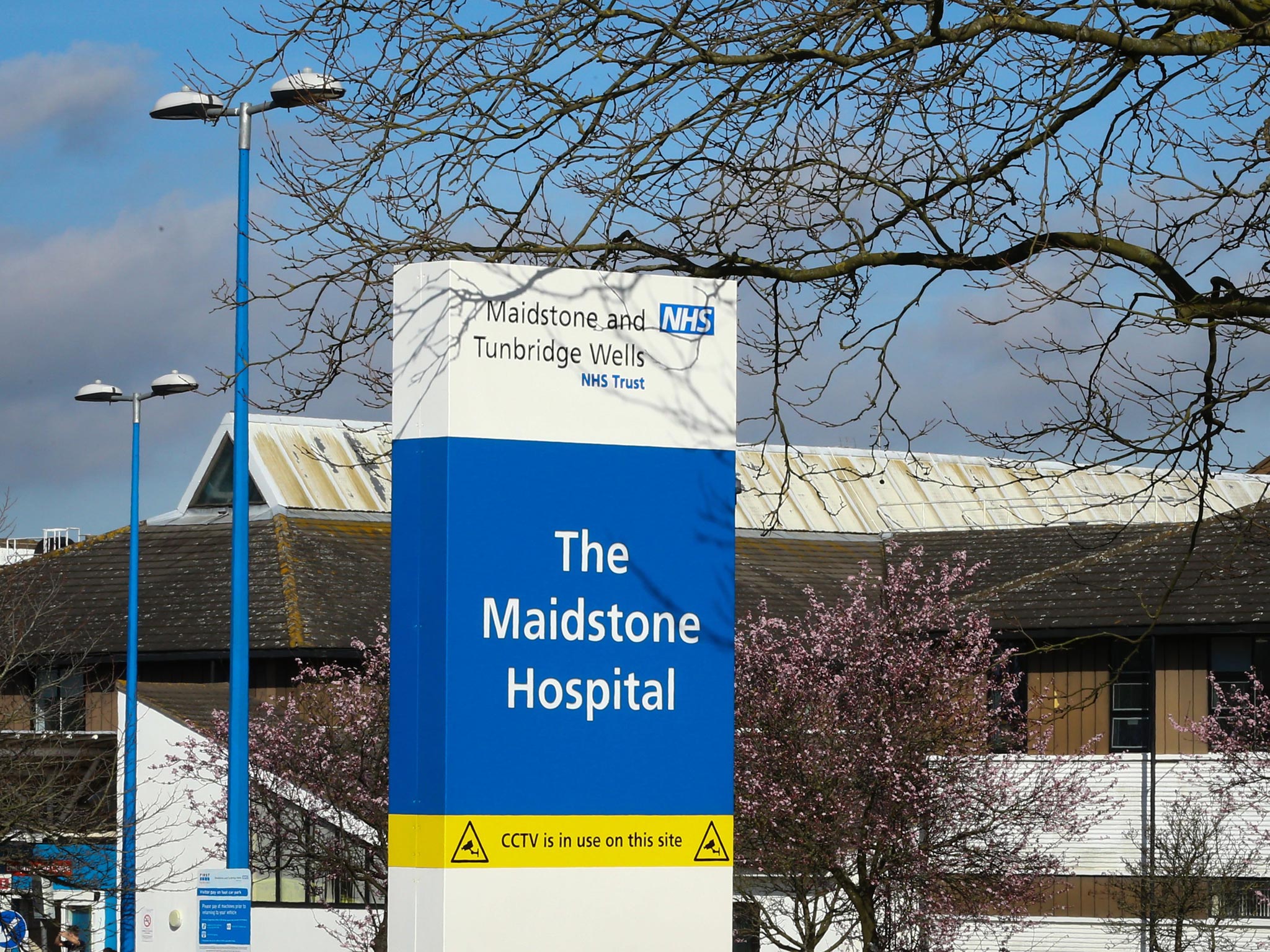Cancer surgeries suspended at Maidstone Hospital in Kent after five patient deaths

Your support helps us to tell the story
From reproductive rights to climate change to Big Tech, The Independent is on the ground when the story is developing. Whether it's investigating the financials of Elon Musk's pro-Trump PAC or producing our latest documentary, 'The A Word', which shines a light on the American women fighting for reproductive rights, we know how important it is to parse out the facts from the messaging.
At such a critical moment in US history, we need reporters on the ground. Your donation allows us to keep sending journalists to speak to both sides of the story.
The Independent is trusted by Americans across the entire political spectrum. And unlike many other quality news outlets, we choose not to lock Americans out of our reporting and analysis with paywalls. We believe quality journalism should be available to everyone, paid for by those who can afford it.
Your support makes all the difference.Surgery for a range of cancers has been suspended at an NHS hospital after five patients died from “potentially avoidable” complications. The widow of one patient who died said that her husband had been treated like “a human guinea pig” for a new surgery technique.
The Maidstone Hospital in Kent will not perform upper gastrointestinal (GI) cancer surgery – for cancers of the stomach, oesophagus, liver and pancreas – for up to 12 months after an investigation by the Royal College of Surgeons revealed higher than expected rate of complications following surgery in 2012 and last year.
An internal review found that up to five patients may have died as a result of “potentially avoidable” complications, which were linked to the use of laparoscopic, or keyhole, surgery techniques.
The widow of a 51-year-old oesophageal cancer patient, who received surgery to remove a tumour in 2013, has now launched a clinical negligence claim.
In a statement her solicitor said that the surgical team had “strongly advocated a new minimally invasive technique”, which it was claimed carried benefits including a shorter recovery time and fewer complications. His entire operation was broadcast to a conference of consultants and trainees.
However, the patient suffered a major haemorrhage five days after being discharged and died despite intervention by the surgical team, said solicitors Thomson, Snell & Passmore.
The Maidstone and Tunbridge Wells NHS Trust said that upper GI cancer patients requiring surgery would be referred to St Thomas’ Hospital in central London while “necessary improvements were made”.
The incidents have been referred to the General Medical Council (GMC), the Trust said, but no members of staff are currently being investigated. A spokesperson for the Trust said that “while members of staff have been held to account, their overall standard of practice does not support further sanctions”.
A report on the internal investigation into the problems cannot be published due to Data Protection and confidentiality reasons, the spokesperson said, adding that the complications which might have contributed to the five deaths “were not solely due to one specific and reoccurring theme”.
He added: “The types of complications were unusual for this type of surgery, however, and probably associated with laparoscopic [keyhole] techniques.”
The trust’s medical director Dr Paul Sigston said: “We are sorry that some patients did not receive the level of care and treatment that they should have due to potentially avoidable surgical complications. The actions we have taken will ensure the quality of care they receive is of the highest possible standard while improvements are made to address the findings of this review.”
Solicitor Sharon Lam, acting for the widow of the 51-year-old patient, said that there were “serious questions” about the reliability of the procedure in question.
“Our main concern is that the deceased could have opted for a more conventional procedure, but this particular procedure was highly advocated by the surgeon,” Ms Lam said.
The Trust has not named any of the staff involved for “HR reasons”.
The Royal College of Surgeons (RCS) said it was continuing to monitor the trust’s work in implementing the recommendations from its report.
Join our commenting forum
Join thought-provoking conversations, follow other Independent readers and see their replies
Comments